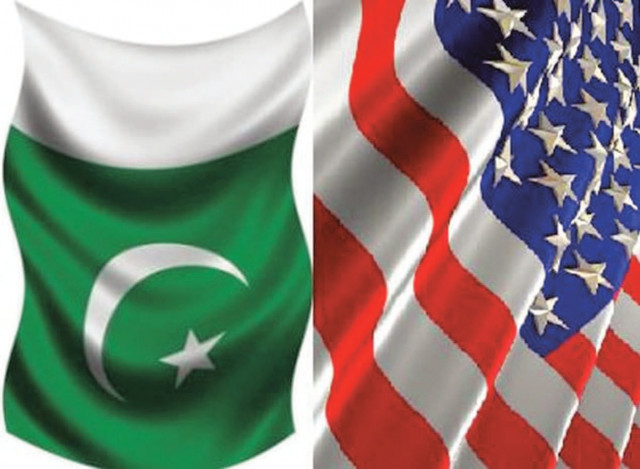US-Pak ties: Fresh peace overtures drown out battle cries
Considerable thaw in White House, US department of defence statements.

Peace overtures – both rhetorical and musical – drowned out a high-pitched back and forth between Islamabad and Washington that had heightened tensions between the two allies over the last few days.
Days after chairman of the US Joint Chiefs of Staff Admiral Mike Mullen’s stirring statement on the ISI supporting the Haqqani network set off a fiery row between Islamabad and Washington, the White House on Wednesday declined to reinforce the top US military officer’s words.
While White House spokesman Jay Carney did again candidly stress that Washington was concerned about links between the network, blamed for attacks on US troops in Afghanistan, and the ISI, he added a disclaimer: “It is not language I would use.”
Carney was responding to a question on whether the US president shared the views Mullen expressed last week.
“It’s a matter of semantics,” said Carney, seeking to ease the row over the comments by noting Pakistan’s close cooperation in the past in the US struggle against Al-Qaeda.
A considerable thaw in Washington’s shrill tone had already begun a little earlier.
On Tuesday, Pentagon Press Secretary George Little had told reporters at the Department of Defence that it is important “that both sides continue the dialogue, and that’s happening”. The Pentagon Press Secretary said that the Defense Department will continue to work through the differences between both countries.
Little said, “We want to maintain a relationship with Pakistan that’s grounded in common interests, to include going after terrorists that threaten both countries.”
Earlier on Wednesday, The Washington Post reported that Pentagon officials believed Adm Mike Mullen’s assertions last week were overstated and contributed to overheated reactions in Pakistan and misperceptions in Washington, according to American officials involved in US policy in the region. The internal criticism by the officials, who spoke on the condition of anonymity because they did not want to challenge Mullen openly, reflects concern over the accuracy of Mullen’s characterisations.
Mullen’s language “overstates the case,” said a senior Pentagon official with access to classified intelligence files on Pakistan, because there is scant evidence of direction or control. If anything, the official said, the intelligence indicates that Pakistan treads a delicate if duplicitous line, providing support to insurgent groups including the Haqqani network but avoiding actions that would provoke a US response, The Washington Post reported.
“The Pakistani government has been dealing with Haqqani for a long time and still sees strategic value in guiding Haqqani and using them for their purposes,” the Pentagon official said. But “it’s not in their interest to inflame us in a way that an attack on a [US] compound would do.”
US military officials said that Mullen’s testimony before the Senate Armed Services Committee has been misinterpreted, and that his remark that the Haqqani network had carried out recent truck-bomb and embassy attacks “with ISI support” was meant to imply broad assistance, but not necessarily direction by the ISI.
Interestingly enough, the peace overtures were also of the literal variety.
Pakistan and the United States set aside an escalating row over proxy warfare for a night of musical fusion by the moonlit shores of a lake, hoping to cement public friendships, and all that jazz.
Hosting a concert by the shores of Rawal Lake on Tuesday, the US embassy brought together America’s “Ari Roland Jazz Quartet” and Pakistani rock band “Fuzon”, capping the night with the “world premiere” of a special friendship song.
“Paint the colours of love in face of hatred. Let’s forget all indignations and traverse all distances separating us,” went the lyrics of the song entitled “no life without friendship.”
The musical pairing was a relative success, if only to a converted audience of hundreds, mostly the country’s Western-educated elite.
By the end of the night, revellers were up dancing, enthused by a rousing mix of patriotic Pakistani anthems such as “Jazba Junoon” and US classics such as Louis Armstrong’s “Wonderful World”.
“What we try to do is look beyond the politics of the moment, look beyond the relationship between our governments and try to make stronger relationships between our people,” US public affairs official Mark Davidson told the crowd.
The friendship song, he said, “will guide us as we go forward... because I believe and I know that when we work together we are far stronger than when we operate separately.”
But in a possible nod to the trials and tribulations of managing the latest diplomatic crisis, Munter did not attend the concert. Plans for him to play piano in a personal show of cultural diplomacy did not materialise. Instead on Tuesday, he met with Pakistan President Asif Ali Zardari. (WITH ADDITIONAL INPUT FROM WIRES)
Published in The Express Tribune, September 29th, 2011.



















COMMENTS
Comments are moderated and generally will be posted if they are on-topic and not abusive.
For more information, please see our Comments FAQ